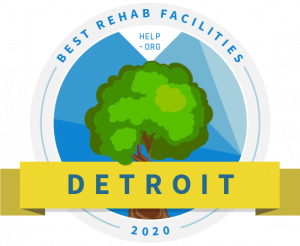Chronic Homelessness
For some individuals, homelessness is a temporary situation. But for others, it is much more persistent. These are the chronically homeless. They have a diagnosed disability and have been homeless for at least one continuous year or experienced at least four episodes of homelessness in the past three years.
The National Alliance to End Homelessness reports there are 84,291 chronically homeless individuals in the United States, based on last year’s point-in-time counts.
Chronic homelessness presents a challenge for many cities and social services agencies that are working to reduce the number of people living on the streets and lower the public costs associated with the homeless, which result from the use of emergency medical services and frequent jail time.
Here in Detroit, city officials are currently working on a plan to address chronic homelessness. The issue presented itself over the winter when about a dozen homeless people camped in tents in a park for several months. They refused to go to shelters in the area. The city later moved them to a hotel and apartments.
Now, the director of the city’s Housing and Revitalization Department is pulling together a group of local social services agencies to analyze metrics, set goals and make recommendations to the Mayor to keep this from happening again.
Many believe the most cost-effective solution to chronic homelessness is permanent supportive housing. That’s a combination of affordable housing and supportive services that will help the individual become a stable resident with improved health and social skills.
As head of Detroit Rescue Mission Ministries (DRMM), I know that it will take even more to break the cycle of chronic homelessness. We must address the individual’s medical, behavioral and substance abuse issues; provide educational opportunities; teach him or her marketable job skills; and offer continued aftercare.
Only with this “complete support package” can we begin to permanently rid this country of chronic homelessness.







